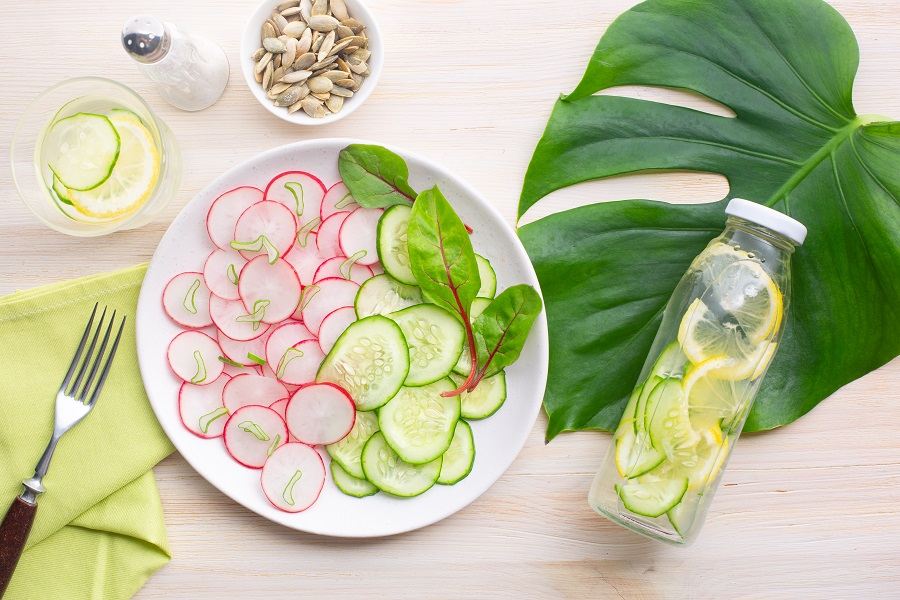HCG Diet – What It Is and What to Eat
- Jan 20, 2022
A weight loss process can be exhaustive, especially when you don’t have an organized plan to make it happen. HCG diet has been gaining a lot of attention for its effectiveness. If you are struggling to lose weight despite a balanced diet and exercise, you should consider choosing the HCG diet. A medical professional should monitor weight loss by HCG diet to carry it out safely.
 What Is the HCG Diet?
What Is the HCG Diet?
HCG diet uses the human chorionic gonadotropin hormone to promote weight loss by enhancing body metabolism. HCG is a protein-based hormone that can accelerate the body’s ability to turn food into energy, thus helping with significant weight loss.
HCG diet combines HCG supplements or injections with a low-calorie diet. Many myths surround the diet, and one among them is that the weight loss is because of the low-calorie diet and that the HCG injections are ineffective. But HCG supplements or injections are needed to burn the extra fat so that the low-calorie diet does not exhaust the person. To know more about the myths and truths surrounding the HCG diet, read our blog https://ranimd.com/articles/hcg-diet-myths-and-facts.
Phases of HCG Diet
HCG diet should be done in three phases to get effective results. A certified medical professional should be monitoring the person all through the process. If followed correctly, the person will be able to control cravings while burning the right amount of fat. Here are the 3 phases of the HCG diet:
Loading Phase: This stage prepares the body to enter the weight loss phase. During this phase, which usually lasts for 2-3 days, the person is recommended a high fat and high-calorie diet. About 250 grams of fat intake is allowed during this period. Along with this, HCG supplements or injections are also provided.
Weight Loss Phase: With this phase, the low-calorie diet (500-800 calories per day) and HCG supplements are started. The calorie intake is usually spread over 2 meals per day. According to the individual’s weight loss goals, this phase might last three to six weeks.
Maintenance Phase: This phase starts after the person undergoing the diet loses the desired weight. The HCG supplements are gradually reduced, and the calorie intake is increased. It is best to opt for a 1200-1500 calorie intake with regular exercise to maintain weight loss.
The person should go through all three phases for the results to be consistent. Some people tend to stop with the second phase once they lose the weight and gain back the lost weight without the maintenance phase. Thus, you follow all the stages for the best results.
What to Eat During HCG Diet?
The person undergoing the diet is restricted to a 500-800 calorie diet during the weight loss phase. Usually, during this phase, diet sugar and most carbohydrates are eliminated. Here are some foods you can include in the HCG diet plan.
Lean Proteins
This is the main constituent of the diet, and about 3.5 ounces of lean proteins are recommended per day. Chicken, egg whites, lobster, white fish, cottage cheese, shrimp, crab, extra-lean beef, and scallops are some of the recommended choices.
Vegetables
About one or two cups of approved vegetables per day would be a healthy addition to your diet. Some vegetables that can be included in the plan are cabbage, cauliflower, asparagus, onion, radish, celery, spinach, greens, lettuce, and chard.
Fruits
If you are craving sweets during the weight loss phase, it would be best to get a serving of approved fruits. Apples, citrus fruits like lemons, oranges, etc., and berries like strawberries, raspberries, and blueberries are allowed.
Herbs and Spices
Though you are restricted to a low-calorie diet, you can make it tasty with herbs and spices since these consist of low or no calories. Add thyme, salt, pepper, garlic, rosemary, and lemon juice to flavor your food.
Coffee and Tea
Coffee, tea, and water are allowed in any desired amount during the diet. Tea and coffee should not contain sugar or milk but can be sweetened with saccharine. Only one tablespoon of milk is allowed per day while in the weight loss phase.
What Not to Eat
It is best to restrict or avoid some foods while following the HCG diet. Some of them include:
Milk and dairy products
High carbohydrate foods
Sugar and sugar-containing foods
Alcohol
Oils and fats
Rani MD
At Rani MD, we offer an HCG diet program that is medically supervised. During this program, a complete diet plan and specific doses of medical-grade HCG are administered. Learn more about the plan by visiting our website at www.ranimd.com.
